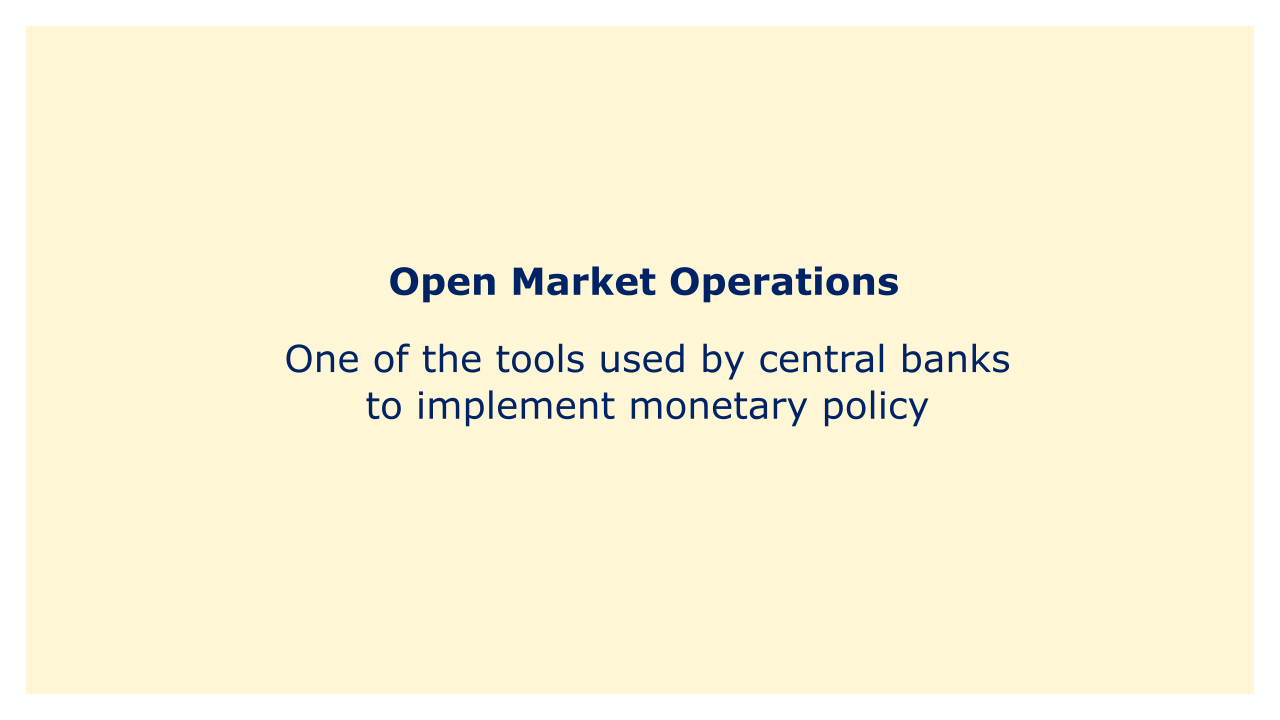 |
| Image: Moneybestpal.com |
Open market operations (OMOs) are one of the tools used by central banks to implement monetary policy. OMOs entail the purchase and sale of government securities on the open market in an effort to affect the amount of credit and money available to the economy.
A central bank can engage in open market operations to expand the money supply and boost economic activity by purchasing government securities from commercial banks and other financial institutions. As a result, financial institutions hold more cash on hand, which they can use to provide loans to customers and companies, so boosting the economy.
On the other hand, a central bank can carry out open market operations by selling government securities to commercial banks and other financial institutions in order to reduce the money supply and manage inflation. This lowers the amount of cash that these institutions are holding, which can lead to higher interest rates and less lending, both of which can aid in containing inflation.
The amount and timing of transactions, the current interest rates, and the overall health of the economy are only a few variables that affect how effective open market operations are. In order to decide when and how to conduct open market operations, central banks must closely monitor these variables.
Open market operations can affect financial markets in other ways besides only carrying out monetary policy. For instance, when a central bank purchases or sells government assets, it can affect both the price of those securities and the yields on other fixed-income securities available on the market.
On the other hand, a central bank can carry out open market operations by selling government securities to commercial banks and other financial institutions in order to reduce the money supply and manage inflation. This lowers the amount of cash that these institutions are holding, which can lead to higher interest rates and less lending, both of which can aid in containing inflation.
The amount and timing of transactions, the current interest rates, and the overall health of the economy are only a few variables that affect how effective open market operations are. In order to decide when and how to conduct open market operations, central banks must closely monitor these variables.
Open market operations can affect financial markets in other ways besides only carrying out monetary policy. For instance, when a central bank purchases or sells government assets, it can affect both the price of those securities and the yields on other fixed-income securities available on the market.
